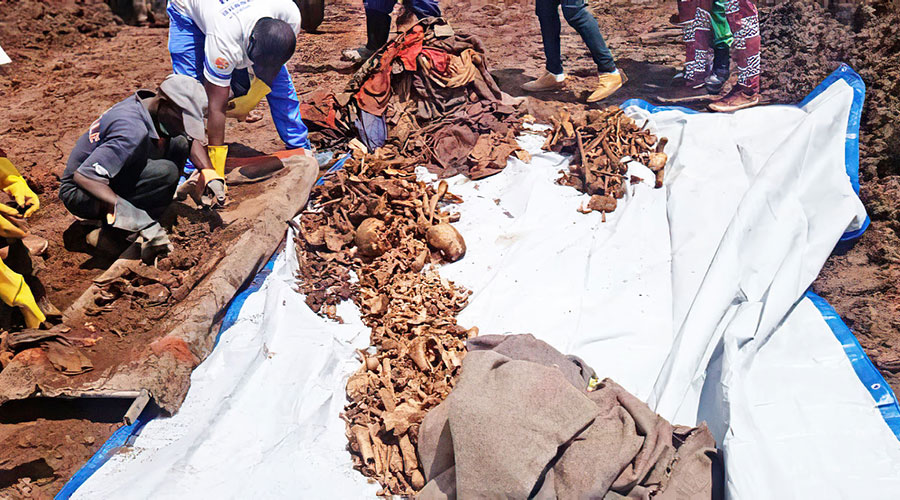

Three years ago, the residents of Kabuga suburb on the outskirts of Kigali were left in shock and disbelief after it emerged that a large expanse of the town and nearby trading centres were built on concealed mass graves of tens of thousands of victims of the 1994 Genocide against the Tutsi.
The exhumation lasted about a year and saw several buildings demolished and in the end remains of more than 80,000 victims were retrieved from beneath the neighbourhood.
While some residents may have been oblivious to the fact the buildings they occupied sat on the remains of Genocide victims, some elements were involved in a coordinated effort to conceal information related to the whereabouts of the mass graves.
The truth only came out after a tipsy man made the revelation in 2018, prompting a huge effort to find the remains.
Indeed, this was not an isolated case as similar incidents had been playing out in different parts of the country for over two decades. Alas, the trend continues to date.
Just this month two major exhumations took place in Kabgayi in Muhanga District, Southern Province, and Rukumberi in Ngoma District, Eastern Province.
In Kabgayi, remains of tens of victims were recovered from beneath a construction site at a hospital, while in Rukumberi, remains of thousands of victims were retrieved from fields on the banks of Lake Mugesera.
Disturbingly, in the latter case, it emerged that some farm owners had actually attempted to stop or delay efforts to recover the remains, casually arguing that their crops would be destroyed. And, as was the case with Kabuga where acid and salt were found to have been poured onto the remains in an effort to erase evidence, in Rukumberi it was reported that some people deliberately crushed some human bones with agricultural tools and set them on fire.
Now, honouring the sanctity of the memory of Genocide victims is not only a moral obligation but it is a legal requirement too. Indeed, concealing information related to commission of an offence is a crime in itself.
In Rwanda, offences related to concealment of information in regard to the Genocide or the whereabouts of the remains of the victims and destroying remains are catered for under the 2018 law on Crime of Genocide Ideology and Related Crimes.
These are criminal offences that attract lengthy sentences.
For instance, under article 8, any person who deliberately conceals, destroys, eliminates or degrades evidence or information relating to genocide could face up to nine years in jail and a fine of up to Rwf1 million, while article 9 stipulates that anyone who deliberately degrades or damages bodies of genocide victims could be imprisoned for up to 15 years and fined up Rwf2 million.
There is a need for continuous sensitization of citizens about their legal obligations, in this case on matters relating to honouring and preserving the sanctity of Genocide victims. Observing this is indeed a sacred responsibility.


